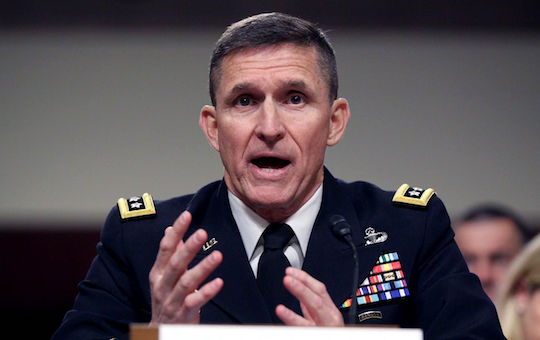Those of you who picked “three weeks” in your office pool on the first resignation of the Trump administration are about to get free cupcakes. Retired general Michael Flynn resigned as National Security Advisor last night, approximately seven hours after Kellyanne Conway told MSNBC that he enjoyed the “full confidence” of the White House. Why Flynn retired is unclear. His original mistake was to discuss sanctions in a phone conversation with the Russian ambassador to the United States back in December, when he was not yet a federal official. That conversation itself is not the problem; the problem, ostensibly, is that he lied to Mike Pence about it. But the administration has known he lied about it for more than a month. Here’s Conway admitting that while simultaneously claiming that this lie was the straw that broke the camel’s back:
“That makes no sense.” @MLauer to @KellyannePolls while discussing Trump’s former national security adviser Michael Flynn pic.twitter.com/94SaFlQJxo
— TODAY (@TODAYshow) February 14, 2017
It seems like the real problem is that people are finding out about the lie. But Conway has issued two contradictory statements on this issue in the last 24 hours—three if you consider the resignation a statement, since she was almost certainly involved. Between her, Stephen Miller, and the shadowy blotchy Steve Bannon, this administration is turning out to be a real field laboratory for students of lying.


